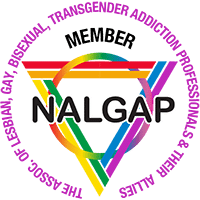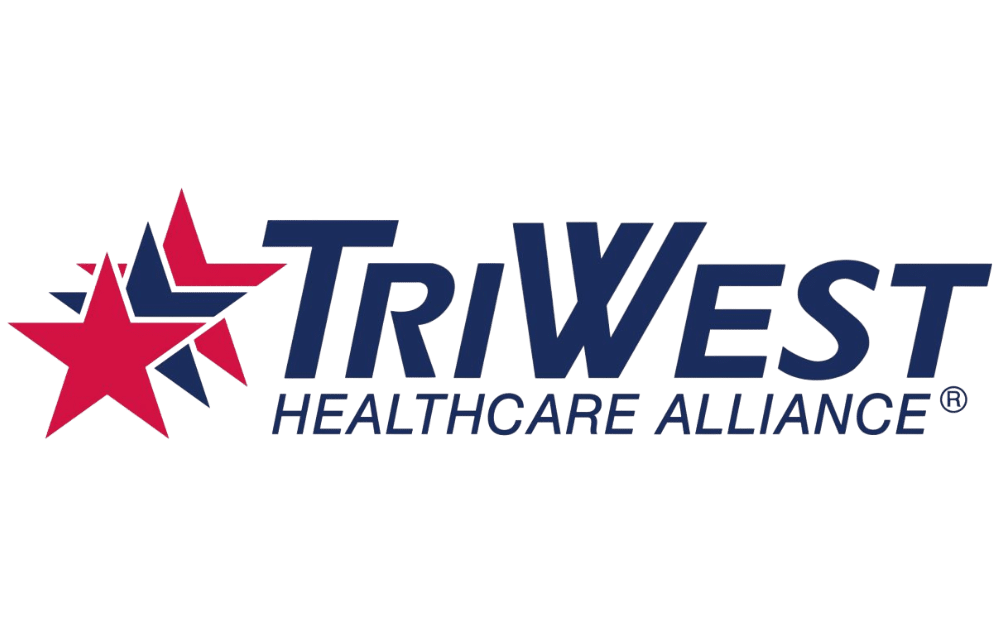Drug treatment centers Denver
Personalized Care at Mile High Recovery
The Mile High Recovery Center offers a unique, personalized approach to addiction treatment that sets it apart from other drug treatment centers Denver. This dedication to individualized care begins with a thorough assessment that informs a tailored treatment plan. Patients are met where they are in their recovery journey, ensuring that care is both relevant and effective.
By weaving together evidence-based therapies like Cognitive Behavioral Therapy and Dialectical Behavior Therapy with experiential modalities, Mile High Recovery provides a robust treatment environment. Their diverse offerings include adventure therapy, art and music activities, and equine-assisted therapy, which cater to various needs and preferences.
Clients benefit from a multi-phase treatment model that emphasizes both medical management and therapeutic experiences. This integrative approach helps patients build skills for long-term recovery, enhancing their ability to reintegrate into their communities.
Comprehensive Treatment Options
Mile High Recovery stands out among drug treatment centers Denver due to its full continuum of care. Clients have access to residential treatment, partial hospitalization, intensive outpatient, and outpatient programs, making it easier to transition between levels of care as needed.
The center’s commitment to accessibility is evident in its same-day admission policy and 24-hour access for intake. This ensures that individuals seeking help can begin their recovery journeys without unnecessary delays. Additionally, medication-assisted treatment options like Suboxone and Vivitrol are available, providing medical support in tandem with therapeutic efforts.
- Residential Treatment
- Partial Hospitalization Program (PHP)
- Intensive Outpatient Program (IOP)
- Outpatient Services
- Medication-Assisted Treatment (MAT)
Integrated Housing and Support
One of the standout features of Mile High Recovery is its integrated housing-to-treatment pipeline. With nine sober living homes, the organization extends its support beyond traditional treatment settings to ensure a supportive recovery environment.
The housing program is closely coordinated with clinical services, promoting stability and continuity in care. This seamless integration helps clients maintain sobriety, facilitating smoother transitions back into daily life.
Treating Co-occurring Conditions
At Mile High Recovery, addressing co-occurring mental health disorders is a vital part of the recovery process. Recognizing the complex interplay between addiction and mental health, the center offers dual-diagnosis services to treat conditions such as anxiety, PTSD, bipolar disorder, and schizoaffective disorders.
The staff’s expertise in both substance use and mental health ensures that patients receive comprehensive care tailored to their specific needs. This dual focus not only improves treatment outcomes but also enhances overall well-being.
Community and Alumni Engagement
Community engagement plays a crucial role in Mile High Recovery’s philosophy. The center fosters an active alumni community that provides long-term support for past and present clients. This network is a testament to the center’s commitment to sustained recovery and reintegration into society.
Alumni events and support groups offer ongoing encouragement and a sense of belonging. These connections can be pivotal in helping individuals maintain their recovery and continue thriving in a supportive environment.
Clinical Therapies and Experiential Modalities
Mile High Recovery’s approach combines established clinical therapies with innovative experiential treatments to create a holistic healing experience. Techniques like EMDR and Motivational Enhancement Therapy are integrated with activities such as adventure therapy and nutrition education.
- EMDR (Eye Movement Desensitization and Reprocessing)
- Motivational Enhancement Therapy
- Adventure Therapy
- Nutrition Education
This comprehensive strategy not only addresses the immediate challenges of addiction but also supports the broader goals of personal growth and self-discovery.
A Focus on Evidence-Based Practice
Among drug treatment centers Denver, Mile High Recovery emphasizes the importance of evidence-based practices. Clinical interventions are grounded in research and tailored to meet the evolving needs of patients. This commitment to science-backed treatment ensures that clients receive the highest standard of care available.
The center’s adoption of evidence-based methods reflects its dedication to delivering measurable outcomes. By focusing on approaches that are proven effective, Mile High Recovery enhances the chances of successful, long-term recovery for each individual they serve.
Innovative Treatment Environment
Situated in the heart of Denver, Mile High Recovery takes advantage of the city’s unique urban and outdoor settings to enrich the recovery experience. The center’s strategic location supports access to both city life and nearby nature, providing a dynamic backdrop for rehabilitation efforts.
This environment fosters a balance of modern amenities and outdoor adventures, aligning with the center’s emphasis on community-based, long-term recovery. These diverse settings also support experiential therapies that involve physical activity and connection with nature.
Insurance and Accessibility
Mile High Recovery’s commitment to accessibility is evident in its comprehensive insurance support. The center accepts in-network reimbursement from major carriers like Aetna, Cigna, and Blue Cross Blue Shield. This ensures that treatment is financially viable for a wide range of clients.
Insurance verification is integrated into the intake process, streamlining the transition into care. This attention to financial accessibility demonstrates Mile High Recovery’s dedication to making high-quality treatment available to as many individuals as possible.
A Commitment to Quality and Accreditation
The high standards at Mile High Recovery are reflected in its industry recognition and accreditation. Affiliations with the Joint Commission and NALGAP, coupled with LegitScript verification, underscore the center’s commitment to ethical and effective treatment.
This focus on quality assures clients that they are receiving credible and reliable care. By maintaining rigorous standards, Mile High Recovery reinforces its reputation as a leading provider of addiction services in the Denver area.
What sets Mile High Recovery’s personalized approach apart from other drug treatment centers in Denver?
Mile High Recovery stands out due to its commitment to a truly personalized treatment experience. Imagine meeting someone where they are, both physically and emotionally, in their recovery journey. Our initial thorough assessments are akin to new beginnings for clients, forming the blueprint for a tailored plan that addresses their unique needs. By integrating evidence-based therapies such as Cognitive Behavioral Therapy with experiential approaches like adventure therapy and equine-assisted therapy, we provide a rich, multifaceted environment that promotes long-term recovery. This is more than just a treatment; it’s a holistic journey towards regaining control and rebuilding one’s life.
How does Mile High Recovery address co-occurring mental health conditions alongside addiction treatment?
Understanding the intricate connections between mental health and substance use is at the heart of our approach. At Mile High, we prioritize treating co-occurring conditions by offering comprehensive dual-diagnosis services. For instance, a client with a history of anxiety and substance use will receive care that simultaneously addresses both concerns. This dual approach not only improves treatment outcomes but also enhances overall well-being. Our experienced staff, well-versed in both arenas, ensure that the care is integrated and coherent, tailored to each individual’s specific circumstances. This holistic focus is critical for achieving sustained recovery.
What measures does Mile High Recovery take to ensure accessibility for those seeking treatment?
Ensuring that individuals can access treatment when they need it is one of our key priorities. Mile High offers same-day admissions and 24-hour access for intake, ensuring that barriers such as timing do not delay someone’s path to recovery. Financial accessibility is also crucial, which is why we accept in-network reimbursement from major insurance carriers like Aetna and Cigna. By integrating insurance verification into our intake process, we streamline the financial aspect, allowing clients to focus on their recovery journey. This commitment to accessibility demonstrates our dedication to making high-quality treatment available to all who seek it.
How does the location of Mile High Recovery enhance the treatment experience?
Mile High Recovery is uniquely positioned in Denver, allowing us to leverage both urban conveniences and the tranquility of nature in our treatment approach. Imagine a center where you can benefit from modern amenities while also having easy access to outdoor activities that complement your recovery journey. Our proximity to nature supports experiential therapies such as adventure therapy, which can be transformative for individuals working through substance use issues. This dynamic environment fosters a balance between introspection and active engagement with the world, contributing to a comprehensive healing experience.
How does Mile High Recovery support clients after they complete their treatment programs?
Continuing support post-treatment is crucial for sustaining recovery, and at Mile High, we emphasize the importance of community and alumni engagement. We have cultivated an active alumni network that provides ongoing support, encouragement, and a sense of belonging long after clients have completed their formal programs. Through alumni events and support groups, individuals can continue to thrive in a supportive community. Imagine the power of being backed by peers who have walked a similar path and understand firsthand the challenges and triumphs of recovery. This sense of community is critical for long-term success.
Resources
- Substance Abuse and Mental Health Services Administration (SAMHSA) – SAMHSA is the agency within the U.S. Department of Health and Human Services that leads public health efforts to advance the behavioral health of the nation.
- American Psychiatric Association (APA) – The APA is a medical specialty society that works to ensure humane care and effective treatment for all persons with mental disorders.
- National Alliance on Mental Illness (NAMI) – NAMI is the largest grassroots mental health organization in the United States, dedicated to building better lives for those affected by mental illness.
- Centers for Disease Control and Prevention (CDC) – The CDC is a federal agency focused on protecting public health and safety through the control and prevention of disease, injury, and disability.
- National Institutes of Health (NIH) – The NIH is the primary agency for conducting and supporting medical research and is composed of 27 Institutes and Centers.
















